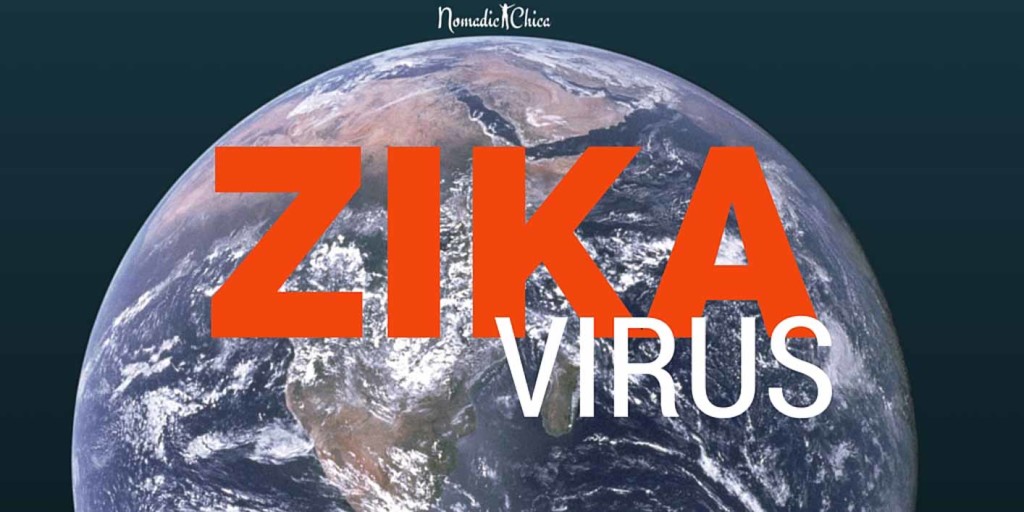 What you should know about Zika virus and how to prevent it
What you should know about Zika virus and how to prevent it
When we travel there are many things to consider before reaching our destination.
things as basic as knowing what to wear or places you will visit, combined with more complex details as paperwork or health precautions you should take before getting to your destination.
If you are someone who regularly take certain precautions before traveling, or watch the news, and media probably already have heard something about a new outbreak of a virus that threatens to spread throughout the world: the Zika virus.
I hope this will serve to know how to prevent and thus make you enjoy your trip. As I write this I’m enjoying in Brazil and the presence of a virus does not prevent me travel to the destination I want and I planned to go on before the alert.
The advantage of the wealth of information available online make it easier to be careful, have responsible travel. But please, don’t panic with all that is said in the media! Nowadays you can even find information with its own hashtag #ZikaVirus

This virus was detected in humans in 1950 and appeared in Brazil in May 2015. This year the WHO has indicated its rapid expansion in 24 countries of America and it’s expected that during 2016 more than four million people will be infected, so it is now a public health emergency.
Worries about Zika are because of an apparent link between cases of infected women and the presence of microcephaly in babies but this relationship is not yet completely determined.
The mosquito that carries the Zika virus is Aedes aegypti and is the same vector of dengue. It is present in some European countries like Portugal and the Netherlands but is not active so it’s not an active vector for transmission. WHO indicates that could be reactivated with the beginning of summer and increasing temperatures.
The mosquito carrying Zika virus survives and multiplies in an aquatic environment and high temperatures, which is why it has expanded rapidly in Latin America through garbage dumps or blood of travelers returning from their vacation. Recent data indicates a possibility of infection through unprotected sexual activity.
Zika virus symptoms and prevention
There is currently no treatment or immunization for Zika virus, so the priority is prevention and avoiding mosquito bites.
This affects travelers like you and me, especially if you plan to travel to crowded destinations such as Brazil. It is necessary to know the measures to prevent the spread of this or any of the other viruses transmitted by the Aedes Egypti.
Zika virus diagnosis is done by PCR (polymerase chain reaction) but can be difficult because it can present cross with other flaviviruses, such as dengue and yellow fever reactions.
Usually, when Zika manifests produces only mild manifestations as you would the flu, but it is especially risky for pregnant women and believed that could cause neurological damage to the fetus, as microcephaly or Guillain-Barre syndrome.
One in five people infected with Zika virus can have symptoms that last for 3-12 days and are generally very mild or asymptomatic. The symptoms are generally ranging from fever, muscle or joint pain, conjunctivitis and headache. Less frequent symptoms are vomiting, abdominal pain, loss of appetite or diarrhea.

What to do if you are in an affected area
Health authorities have prepared a series of recommendations for those traveling to areas affected by the presence of this virus and it is good to be alert to the onset of symptoms to go to a health center if they are presented.
It is very important to travel with a health insurance if you require quick attention, check out HERE the health insurance most used by travelers
The essential is to avoid Zika virus complications by preventing mosquito bites. If you are in the affected areas the following is recommended:
- Use repellent constantly, especially during the day is when the mosquito carrying the Zika virus bite. It is recommended the ones containing Icaridin or DEET in high proportions, more than 30%. Spray is recommended, and apply it first in hands and then distribute it throughout the body.
- If you are pregnant consult your doctor about the best repellent for your condition.
- Stay in places with mosquito protection on the windows and with air conditioning.
- Sleep in an isolated place from the outside and hopefully with mosquito netting.
- Wear clothing that covers your skin and is light colored, dark colors attract more mosquitoes. (They love to nibble at your ankles!)
- Avoid using perfumes and very scented lotions
- Remove all sources of stagnant water near your environment, and items that can collect water to eliminate mosquito breeding sites.
- There are some records that indicate the Zika virus could be transmitted sexually, so it is also important to maintain caution in this area.
Treatment
The disease manifested by Zika virus is usually asymptomatic and does not need special treatment, only symptomatic management is performed.
Patients should be at rest, drink plenty of fluids and take common painkillers, avoiding aspirin for the risk of bleeding. If symptoms worsen should consult a physician.

 What you should know about Zika virus and how to prevent it
What you should know about Zika virus and how to prevent it













Very pertinent and useful article. Unfortunately mosquitoes love me, but it would be a shame to let this stop someone travelling somewhere.
I guess the unknown is the thing that has most people worry. My dad is sending me every article about it and I keep asking him: should I not go? And he answers: no no, but just so you know. the lack of information and the contradicting information is what makes people doubtful. I guess it’s good to know all the information and act accordingly. So thank you for the update. Let’s hope they do not find any other effect of the virus.